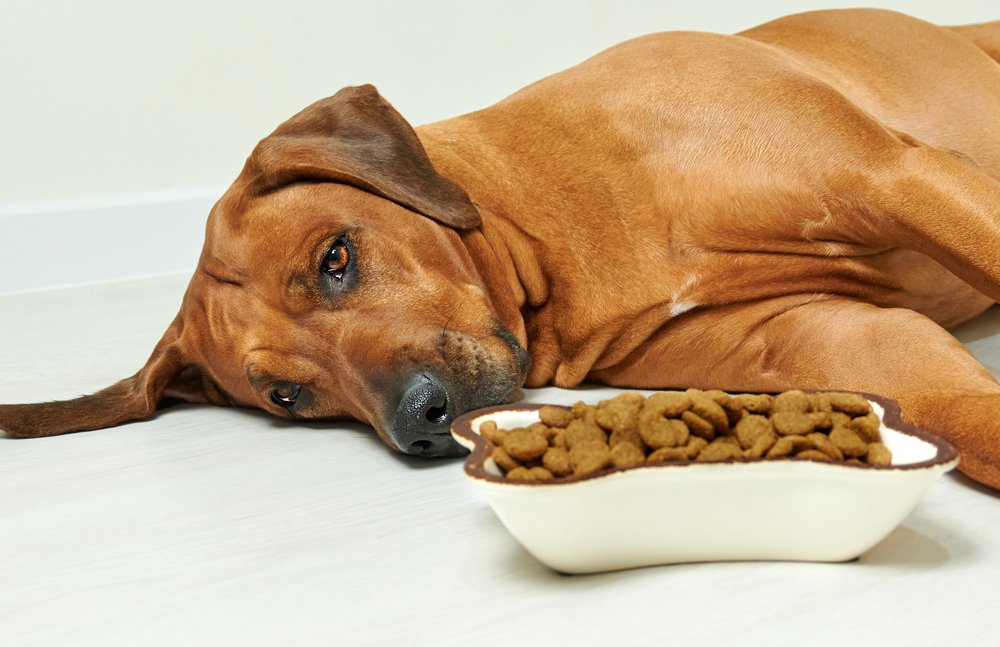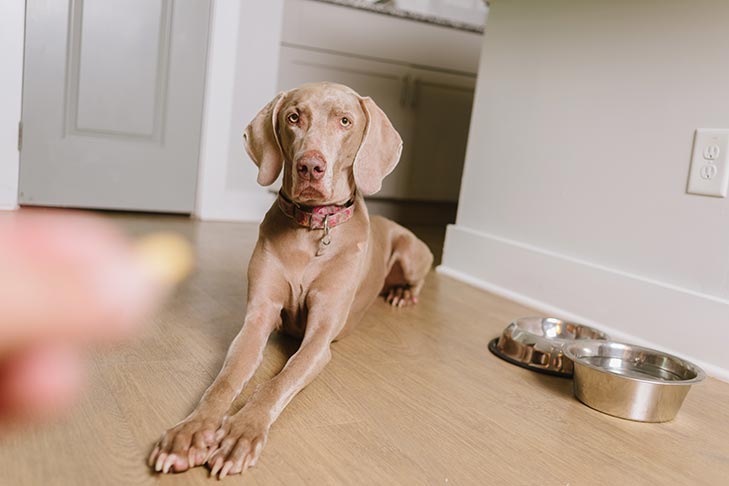Sick Dog Diet? Nutritious Diet for Canine Health and Recovery
Sick dogs require special care and attention, including a well-balanced and nutritious diet to aid in their recovery. Providing the right foods can help alleviate symptoms, boost the immune system, and support overall health. However, it’s important to understand a dog’s specific nutritional needs and consult with a veterinarian before making any dietary changes. In this article, we will explore the best foods for sick dogs, as well as foods to avoid, and offer tips on preparing homemade meals or selecting commercial options. By following these guidelines, you can ensure your furry companion receives the nutrients they need for a speedy recovery.
Introduction
When a dog falls ill, it’s crucial to address their nutritional needs to aid in their healing process. Proper nutrition plays a vital role in a sick dog’s recovery by providing the necessary nutrients to support their immune system and maintain overall health. However, it’s essential to consider a dog’s individual condition and consult with a veterinarian to develop a suitable dietary plan. With careful consideration and a well-balanced diet, you can provide your sick dog with the best chance of regaining their health and vitality.
Understanding a Dog’s Nutritional Needs
To provide the right diet for a sick dog, it’s essential to understand their nutritional requirements. Dogs, like humans, need a combination of macronutrients and micronutrients to thrive. Macronutrients include proteins, carbohydrates, and fats, which are required in larger quantities, while micronutrients include vitamins and minerals, needed in smaller amounts but equally important for optimal health.
Macronutrients for Dogs
Proteins are the building blocks of a dog’s body, helping repair tissues, build muscles, and support the immune system. High-quality, easily digestible proteins are crucial for a sick dog’s diet. Sources such as lean meats (chicken, turkey, beef), fish, and eggs are excellent choices.
Complex carbohydrates provide dogs with energy. Opt for whole grains like brown rice or oatmeal, as well as starchy vegetables such as sweet potatoes or pumpkin, which are gentle on the digestive system.
Healthy fats, such as omega-3 fatty acids, are beneficial for a sick dog’s coat, skin, and immune system. Sources like salmon oil or flaxseed oil can be added to their meals in moderation.
Micronutrients for Dogs
Micronutrients play a crucial role in a dog’s overall health and well-being. Vitamins, including vitamin A, B-complex vitamins, vitamin C, vitamin D, and vitamin E, are essential for various bodily functions. Minerals like calcium, phosphorus, magnesium, and zinc are necessary for healthy bones, teeth, and other bodily processes. A balanced and varied diet that includes fruits, vegetables, and supplements, if recommended by a veterinarian, can help meet these micronutrient needs.
Feeding a Sick Dog (Sick Dog Diet)
When a dog is sick, it’s vital to consult with a veterinarian before making any changes to their diet. The veterinarian will assess the dog’s condition and make recommendations based on their specific needs. Proper nutrition can significantly impact a dog’s recovery, as it provides the fuel and building blocks necessary for their body to heal and regain strength.
The Role of Proper Nutrition in Recovery
A well-balanced diet tailored to a sick dog’s needs can provide several benefits during the recovery process. Proper nutrition:
- Supports the immune system: A strong immune system is essential for a sick dog to fight off infections and illnesses. Providing the right nutrients can help bolster their immune response.
- Provides energy: Illness and recovery can be taxing on a dog’s body. A nutrient-rich diet ensures they have the energy required for healing and rehabilitation.
- Helps manage symptoms: Certain foods can help alleviate symptoms such as nausea, diarrhea, or loss of appetite, making the recovery process more comfortable for the dog.
- Promotes tissue repair: Proteins and other nutrients aid in tissue regeneration and repair, crucial for healing wounds and recovering from surgeries or injuries.
By understanding the role of proper nutrition in a dog’s recovery, you can take the necessary steps to provide them with the best chance of a swift and successful healing process.
Recommended Foods for Sick Dogs
When it comes to feeding a sick dog, there are several nutritious options to consider. These foods are generally gentle on the digestive system and provide the necessary nutrients for recovery. Let’s explore some of the recommended choices:
Easily Digestible Proteins
During illness, a dog’s digestive system may be sensitive, making it important to offer easily digestible proteins. Lean meats like chicken, turkey, or beef are excellent choices as they provide high-quality protein without adding unnecessary fat. Cooked eggs, especially egg whites, can also be included as a protein source.
Complex Carbohydrates
Complex carbohydrates provide energy and are gentle on a dog’s digestive system. Brown rice, oatmeal, and quinoa are easily digestible options that can help maintain stable blood sugar levels. Steamed or boiled sweet potatoes and pumpkin are other great sources of carbohydrates that are gentle on the stomach.
Healthy Fats
Including healthy fats in a sick dog’s diet can help support their overall health and aid in recovery. Salmon oil or flaxseed oil, rich in omega-3 fatty acids, can help reduce inflammation, promote a healthy coat and skin, and support the immune system. It’s important to use these fats in moderation and consult with a veterinarian for appropriate dosage.
Fiber-Rich Foods
Fiber plays a crucial role in a dog’s digestion and can help regulate bowel movements. Cooked vegetables like carrots, green beans, and peas are excellent sources of fiber. They provide essential nutrients while aiding in maintaining healthy digestion.
Nutrient-Dense Vegetables
Vegetables are a valuable addition to a sick dog’s diet due to their high nutrient content. Leafy greens like spinach, kale, and parsley are rich in vitamins and minerals. Adding them to the dog’s meals, either cooked or pureed, can provide additional health benefits.
Bone Broth
Bone broth is a nutritious and easily digestible option for sick dogs. It is rich in minerals, gelatin, and collagen, which can support joint health and promote healing. Homemade bone broth or commercially available options without added salt or seasonings can be beneficial.
Probiotics and Prebiotics
Probiotics and prebiotics can aid in maintaining a healthy gut flora and improving digestion. Yogurt, kefir, or specially formulated probiotic supplements can help restore the balance of beneficial bacteria in a sick dog’s gut.
It’s important to note that the specific foods recommended may vary depending on the dog’s condition and individual needs. Always consult with a veterinarian to ensure the best dietary plan for a sick dog.
Foods to Avoid for Sick Dogs
While some foods can benefit sick dogs, there are several items to avoid to prevent further complications. These foods can exacerbate symptoms or pose a risk to a dog’s health. Let’s take a look at what to avoid:
Toxic Foods
Certain foods are toxic to dogs and should never be given, especially when a dog is sick. These include chocolate, caffeine, grapes, raisins, onions, garlic, alcohol, and products containing xylitol. These foods can cause severe health issues and should be kept away from dogs at all times.
Foods High in Fat or Salt
Foods high in fat or salt can be challenging for a sick dog’s digestive system to process. Avoid giving fatty cuts of meat, fried foods, or heavily seasoned dishes. Excess salt intake can lead to dehydration or worsen existing health conditions.
Foods with Artificial Ingredients
Artificial ingredients, preservatives, and additives can be detrimental to a sick dog’s health. Avoid foods that contain artificial colors, flavors, or excessive additives. Opt for natural and minimally processed options instead.
By steering clear of these potentially harmful foods, you can ensure your sick dog’s diet supports their recovery and overall well-being.
Preparing Homemade Meals for Sick Dogs
Preparing homemade meals for a sick dog requires careful consideration of their nutritional needs and specific health condition. Homemade meals allow you to have complete control over the ingredients and ensure your dog receives the necessary nutrients. Here are some tips for preparing homemade meals:
Balancing Nutrients
It’s important to maintain a balance of proteins, carbohydrates, and fats in a homemade meal. Consult with a veterinarian or a veterinary nutritionist to create a balanced recipe that meets your sick dog’s specific needs. They can provide guidance on portion sizes and additional supplements if required.
Cooking Methods
Cooking methods can affect the nutritional content and digestibility of the food. Boiling, steaming, or baking are recommended cooking techniques that help retain nutrients while making the food easier to digest. Avoid excessive use of oils or fats during cooking.
Recipe Ideas
Consider the specific dietary needs of your sick dog when creating homemade meals. Here are a few recipe ideas to inspire you:
- Chicken and rice: Boil chicken breasts, shred them, and mix with cooked rice. This simple recipe provides easily digestible protein and carbohydrates.
- Fish and sweet potato: Bake or steam fish fillets, and serve them with mashed sweet potatoes. Fish provides lean protein and omega-3 fatty acids, while sweet potatoes offer complex carbohydrates.
- Turkey and vegetable stew: Cook ground turkey with a variety of dog-safe vegetables like carrots, peas, and green beans. Add some low-sodium broth for extra flavor and moisture.
Remember to introduce new foods gradually, especially if your dog has a sensitive stomach. Monitor their reaction and adjust the recipe if necessary. Regularly consult with a veterinarian to ensure the homemade meals meet your sick dog’s specific nutritional requirements.
Commercial Options for Sick Dogs
If preparing homemade meals isn’t feasible or you prefer a convenient alternative, there are commercial options available specifically designed for sick dogs. Here are a few options to consider:
Prescription Diets
Veterinarians may prescribe specialized diets formulated to address specific health conditions. These prescription diets are carefully balanced to provide the necessary nutrients while supporting the dog’s recovery. They are available in various forms, including wet and dry options.
Limited Ingredient Diets
Limited ingredient diets are formulated with a minimal number of high-quality ingredients. These diets can be beneficial for dogs with food sensitivities or allergies. They typically contain a single source of protein and a limited number of carbohydrates, making them easier to digest.
Wet and Dry Dog Food
Commercial wet and dry dog food options are widely available and can provide a balanced diet for sick dogs. Look for options that prioritize high-quality proteins, whole grains, and natural ingredients. Avoid products that contain artificial additives, excessive fillers, or by-products.
When selecting commercial options, always read the ingredient labels and choose reputable brands that prioritize quality and nutritional value.
Feeding Tips for Sick Dogs
Feeding a sick dog requires some additional considerations to ensure their comfort and proper nutrition. Here are some feeding tips to keep in mind:
Meal Frequency and Portion Control
Divide your sick dog’s daily food intake into multiple smaller meals throughout the day. This helps prevent overloading their digestive system and provides a consistent supply of nutrients. Consult with a veterinarian to determine the appropriate portion sizes for each meal based on your dog’s size, condition, and nutritional requirements.
Slow Feeding Techniques
If your sick dog tends to eat too quickly, consider using slow feeding techniques. This can prevent choking, indigestion, or vomiting. You can use specialized slow-feed bowls or place obstacles, such as a large ball, in their regular food bowl to slow down their eating pace.
Food Temperature
Some sick dogs may prefer warm or room temperature food over cold food. Heating the food slightly can enhance its aroma and make it more appetizing. However, ensure the food is not too hot, as it may burn their mouth or throat.
By implementing these feeding tips, you can create a more comfortable and enjoyable eating experience for your sick dog while supporting their recovery.
Monitoring and Adjusting the Diet
As a dog’s health condition evolves, it’s essential to monitor their progress and adjust the diet accordingly. Here are some key points to consider:
Observing the Dog’s Condition
Monitor your sick dog’s overall well-being, including their energy levels, appetite, stool quality, and coat condition. These observations can help identify any changes or improvements that may require adjustments to their diet.
Communicating with the Veterinarian
Regular communication with your veterinarian is vital during a dog’s recovery. They can provide guidance on dietary changes, monitor the dog’s progress, and make necessary adjustments based on their specific needs. If you notice any concerning symptoms or changes, consult with the veterinarian promptly.
By staying vigilant and proactive, you can ensure your sick dog’s diet remains appropriate and effective throughout their recovery journey.
Conclusion
Providing a nutritious diet is crucial for the health and recovery of sick dogs. By understanding a dog’s specific nutritional needs, consulting with a veterinarian, and offering appropriate foods, you can support their healing process and overall well-being. Whether it’s through homemade meals or commercial options, ensuring a balanced and easily digestible diet is key. Remember to monitor your dog’s condition, communicate with your veterinarian, and make necessary adjustments to their diet as they recover. With proper nutrition and care, you can help your sick dog regain their health and vitality.
FAQs
Q: Can I feed my sick dog the same food as healthy dogs?
A: While some foods may be suitable for both healthy and sick dogs, it’s essential to consider a sick dog’s specific needs. Consult with a veterinarian to determine the best diet for your sick dog based on their condition and nutritional requirements.
Q: Can I give my sick dog supplements?
A: The use of supplements should be discussed with a veterinarian. They can assess your dog’s needs and recommend appropriate supplements, if necessary. Avoid giving any supplements without professional guidance, as excessive amounts can be harmful.
Q: How long should I feed my dog a special diet when they’re sick?
A: The duration of a special diet for a sick dog can vary depending on their condition and recovery progress. Your veterinarian will provide guidance on how long to continue the diet and when it’s appropriate to transition back to a regular diet.
Q: Should I consult a veterinarian before making dietary changes for my sick dog?
A: Yes, it’s crucial to consult with a veterinarian before making any dietary changes for a sick dog. They can evaluate the dog’s condition, provide specific recommendations, and ensure the diet meets their nutritional needs.
Q: Are there any specific foods that can help with a sick dog’s nausea?
A: Some dogs may find relief from nausea by consuming bland and easily digestible foods like boiled chicken and rice. However, it’s best to consult with a veterinarian for appropriate recommendations based on your dog’s condition.
Read More:What You Need to Know About Dog Nutrition Requirements














